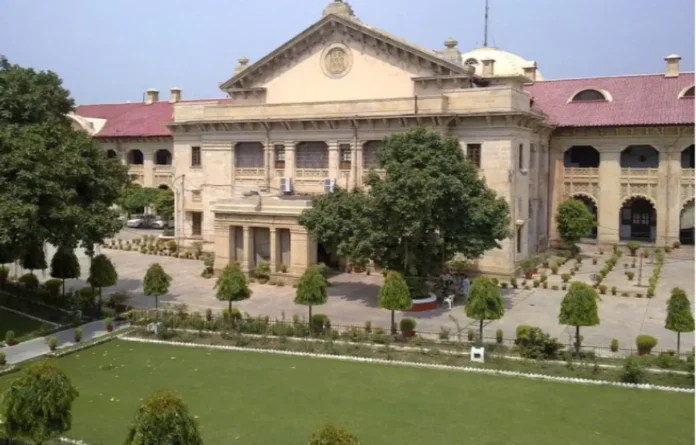The Allahabad High Court, while disposing a petition, has said that granting back wages in the teeth of the principle of “no work no pay” will lead to unjust enrichment of the petitioner and unfair loss to the State exchequer. The petitioner does not have any lawful entitlement to the period of any backwages during the period of his imprisonment.
A Single Bench of Justice Ajay Bhanot passed this order while hearing a petition filed by Shivakar Singh.
The petitioner is aggrieved by the order dated 23.04.2020 declining to pay arrears of salary to the petitioner for the period commencing from 23.01.2015 to 18.12.2018. The impugned order records that the petitioner was imprisoned from 23.01.2015 to 18.12.2018 after a criminal case was registered against him under Section 13(1)(b) read with Section 13(1) of the Prevention of Corruption Act, 1988.
The FIR was filed by one SS Chaudhary, Superintendent of Police, Anti Corruption Department against the petitioner on the complaint received from a private electricity consumer. The salary has been refused on the application of the principle of “no work no pay”.
The prosecution case in the FIR was that the petitioner had demanded bribes for electricity connection from a consumer. The petitioner was thereafter confined to jail from 23.01.2015 to 18.12.2018 during the course of the trial. The petitioner did not discharge his duties for the aforesaid period of three years.
Admittedly, the criminal case was not instituted at the behest of the respondent-corporation. The respondent-corporation who is the employer of the petitioner did not create any hindrance nor prevented the petitioner from working on his post. No departmental proceedings were taken out against the petitioner by the respondent-corporation/his employer in the said case.
The Court said that,
The question that arises for consideration is that whether the petitioner who was absent from duties for the aforesaid period of almost three years and had rendered no work during the said period is entitled to backwages and arrears and whether the principle of “no work no pay” is liable to be relaxed in the instant case.
The principle of “no work no pay” is a salutary principle of general application in service jurisprudence. The principle is accepted only in rare instances like in the event an employer prevents an employee from discharging his duties or creates impediments in regard thereof.
The Court noted that,
The judgement relied upon by the counsel for the petitioner in Raj Narain v Union of India and others where the departmental enquiry was initiated against the concerned employee who was also imprisoned on account of pendency of a criminal case. The petitioner in that case was suspended in contemplation of disciplinary proceedings. Later departmental enquiry proceedings were dropped. In that factual context the back wages for the period of suspension were claimed and were granted. Raj Narain (supra) is distinguishable on facts and not applicable to the case.
Similarly, the judgement rendered by the Single Judge in Anil Kumar Singh v State of UP and 4 others squarely based on the law laid down by the Supreme Court in Raj Narain (supra) and hence is of no assistance to the petitioner.
“In the wake of the facts found in the preceding part of the judgement and position of law discussed above relaxation of the principle of “no work no pay” cannot be countenanced in the case. In fact granting backwages in the teeth of the principle of “no work no pay” will lead to unjust enrichment of the petitioner and unfair loss to the State exchequer. The petitioner does not have any lawful entitlement to the period of any backwages during the period of his imprisonment,” the Court observed while disposing the petition.
Accordingly, the prayer for grant of backwages is rejected by the High Court.


